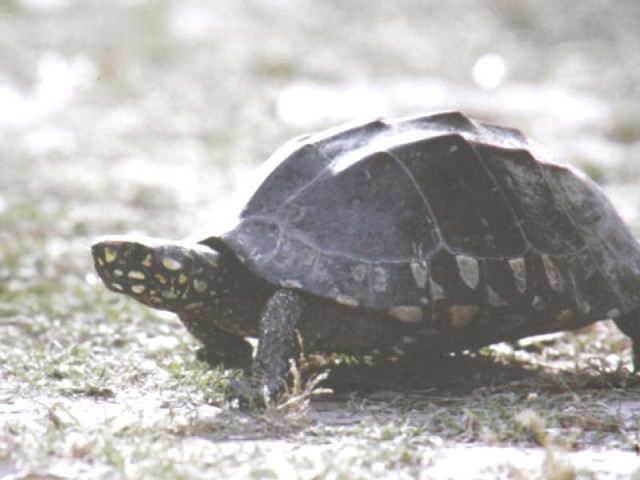Turtle species face extinction threat due to illegal fuel trade
Disfigurement in size of turtles and their scutes has not been observed on any other coastal area of country

Habitat degradation and smuggling of diesel from Iran are posing existential threats to the green turtles in the coastal areas of Daran, Balochistan, according to the World Wide Fund (WWF) Pakistan.
Owing to a conjunction of factors, including mortality during fishing operations, pollution, habitat degradation and climate change, a change in the scutes of two turtles was observed on the shores of Daran.
According to the reports, disfigurement in the size of turtles and their scutes has not been observed on any other coastal area of the country, leading to speculations that this particular aberration may also be caused by oil spill.
The sea route between the two countries has been illegally used to trade fuel with the help of heavy-weight jerry cans, prompting fears about the hazards it poses to wildlife.
Photos released by WWF showed that Daran, a small coastal area between the Pak-Iran border, being used for smuggling fuel from Tehran. Hundreds of people can be seen swarming the shores with nearly 50 pickups.
Last year in October, the authorities took action against the smugglers. However, the measures taken by the authorities to deter the illegal trade failed and the smugglers switched to the land route to avert such future actions.
Read Pakistan losing nesting ground for sea turtles
The coast remains the hub of fuel smuggling carried out in broad daylight for around.
According to WWF Pakistan Technical Adviser Moazzam Khan, the oil spill from heavy weight oil-filled jerry cans in turtle nesting areas poses a serious threat to the population of green turtle.
Moreover, the proliferation of human activity on the beach also hardens the sand, making it difficult for female turtles to form nest in sand, while the stench of oil on the shore can force them to return.
The eggs are then deformed and damaged under the weight of the hardened sand, causing a dramatic change in the new species of turtles.
The smuggling of oil stopped on the coast for a brief period. However, the illegal trade came back to the coast with full sweep last February.
Along with marine turtles, their freshwater cousins are also confronting serious threats, which include Illegal poaching, water shortage, fragmentation of rivers and canals and fishing operations.
Export of freshwater turtle meat, which is banned, is considered as the main threat to these vulnerable species.
Agencies like WWF-Pakistan, provincial wildlife departments, Pakistan Customs and other stakeholders are keeping a vigil to control the illegal trade of the turtle species but efforts result in little or no impact at all.



















COMMENTS
Comments are moderated and generally will be posted if they are on-topic and not abusive.
For more information, please see our Comments FAQ